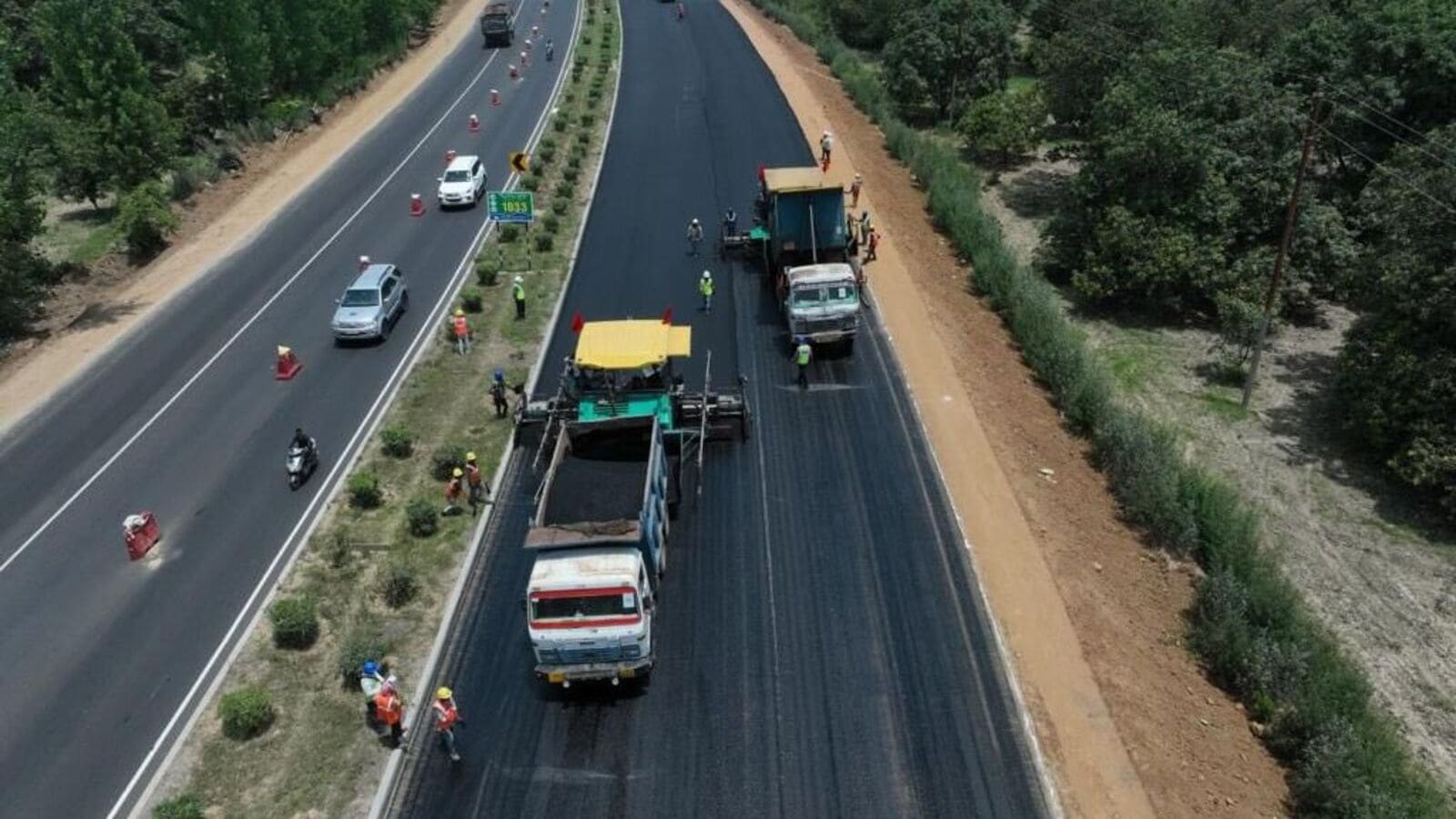National Highways Authority of India (NHAI) stated that the new approach will enable roads to ‘repair’ themselves using a special type of asphalt infu
…
India’s highways, vital arteries of the nation’s transportation network, grapple with persistent challenges, reflecting a broader narrative of infrastructure inadequacy. Despite ongoing efforts to expand and modernise road networks, many Indian highways suffer from a plethora of issues including potholes. These contribute to frequent accidents.
While actions on improving the conditions are taken, the National Highways Authority of India (NHAI) aims to revolutionise road maintenance in the country with a new innovative technology. This approach will enable roads to ‘repair’ themselves using a special type of asphalt infused with steel fibre and bitumen, NHAI stated.
This new material will automatically fill gaps and potholes, addressing a persistent issue that contributes significantly to road accidents and fatalities in India. A report by DD News stated that NHAI officials are optimistic that this technology will effectively fix the problem of potholes. However, the exact time it will take for the asphalt to cover and ‘repair’ a pothole or gap remains unknown.
Also Read : MoRTH builds 12,349 km of highways in FY24, second highest after FY21
Another report quoted a senior government official, “We are exploring innovative and unconventional methods to enhance durability and tackle the issue of potholes.”
Asphalt, a sustainable paving material, is commonly used for constructing pavements, highways, airport runways, parking lots, and driveways. This speeds up construction, is eco-friendly, and ensures a smooth, quiet ride.
Asphalt is typically produced by combining aggregates, binder, and filler. Specialized trucks then transport the hot asphalt mixture to the desired location, where it is spread and compacted using heavy machinery. However, over time, bitumen deteriorates, leading to asphalt erosion and the formation of cracks that eventually become hazardous potholes. The new technology aims to address this degradation.
Prior to moving forward with the initiative, the government intends to conduct a thorough cost-benefit analysis. NHAI is confident that the innovative technology will not only extend the lifespan of roads but also reduce traffic disturbances caused by potholes.
First Published Date: 09 May 2024, 07:18 AM IST

